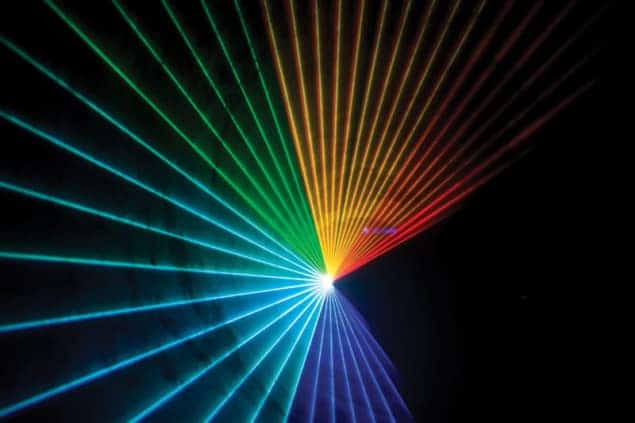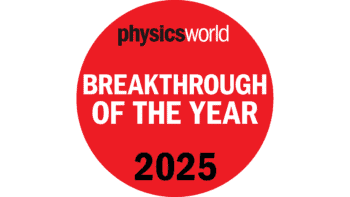With a whole host of anniversaries set for 2015 in optics and electromagnetism, Luisa Cifarelli calls for the year to be designated the International Year of Light

Light plays a central role in science, technology and culture. The study of light and electromagnetism is fundamental to the evolution of essentially all modern science. Light underpins the existence of life itself through photosynthesis, and is our main messenger from investigating the large-scale universe to the infinitely small. Light-based technologies have already revolutionized medicine and opened up international communication via the Internet, and will continue to underpin the future development of human society.
Scientists, from physicists to astronomers and biologists, are, of course, well aware of the tremendous importance of optical science and technology for future development. But it is vital that this message is communicated more widely and that the brightest young minds continue to be attracted into careers in science and engineering. It is precisely for this reason that a proposal has been made for an International Year of Light to promote improved public and political understanding of the central role of light in the modern world.
Initiated by the European Physical Society (EPS), the call for an International Year of Light has assembled an impressive group of partners, including the Institute of Physics, which publishes Physics World. The EPS will now be approaching other international scientific unions and academies to involve them in the future development of the initiative. The proposal has also received a crucial endorsement from the International Union of Pure and Applied Physics (IUPAP) during its general assembly in London last month, which will allow the organizers to prepare a formal request next year to the UN and UNESCO – the UN’s educational, scientific and cultural organization. To make it a success, however, we will need the support of the whole scientific community.
Leading light
The UN has declared “international years” since 1959 to draw attention to topics deemed of worldwide importance, and these can only be granted by the UN’s general assembly. There have been a number of successful science-based themes in recent years, including physics in 2005, astronomy (2009) and chemistry this year. An International Year of Light in 2015 seems like a natural choice given that the year features a remarkable series of anniversaries, all of which have helped our understanding of light.
In particular, in 2015 it will be 200 years since Augustin-Jean Fresnel’s seminal paper introducing the notion of the wave nature of light and 150 years since James Clerk Maxwell’s work on electromagnetism, which paved the way for technologies from lasers to mobile phones. The year also marks the centenary of the incorporation of the speed of light as an essential part of our description of space and time in Einstein’s equations of general relativity, as well as the 50th anniversary of Arno Penzias and Robert Woodrow Wilson’s discovery of the cosmic microwave background – the electromagnetic echo of the Big Bang.
Following the initiative of the EPS’s quantum electronics and optics division in 2009, the International Year of Light was launched by the EPS during the Passion for Light workshop held in Varenna, Italy, on 16 September. The workshop was attended by more than 100 distinguished physicists, including Nobel laureate Theodor Hänsch, IOP president and quantum-optics pioneer Peter Knight and Luciano Maiani, a former director-general of CERN. In addition, Mario Scalet, head of the science unit of the UNESCO Venice office, gave a talk outlining the general role of UNESCO in supporting science, culture and education, and Joseph Niemela, director of UNESCO’s optics education programme, provided an overview of UNESCO’s outreach activities.
By bringing together participants from so many different fields, the workshop clearly showed how light impacts on all areas of science. The general structure of the year, which was established at the Varenna meeting, will be focused around four broad themes: the fundamental science of light; the use of light as an enabling technology; the application of light to improve the quality of life in the developing world; and an educational theme covering the pioneering scientists who have studied light and optics throughout history.
An International Year of Light would have an almost unique potential to demonstrate that science is no longer made up of simple and disparate disciplines, and will highlight very strongly that the 21st century will see an increasing need for strong interactions between all areas in order to achieve the most ambitious scientific goals. With the backing of IUPAP, the project partners will now work through the necessary steps so that 2015 can be declared the International Year of Light.
But we should not forget that light touches upon much more than science. Given its central role in culture and art, an International Year of Light will not only be for scientists and physicists, but will be for all humanity.
- If you are interested in being involved in the planning for the International Year of Light, e-mail light@eps.org



